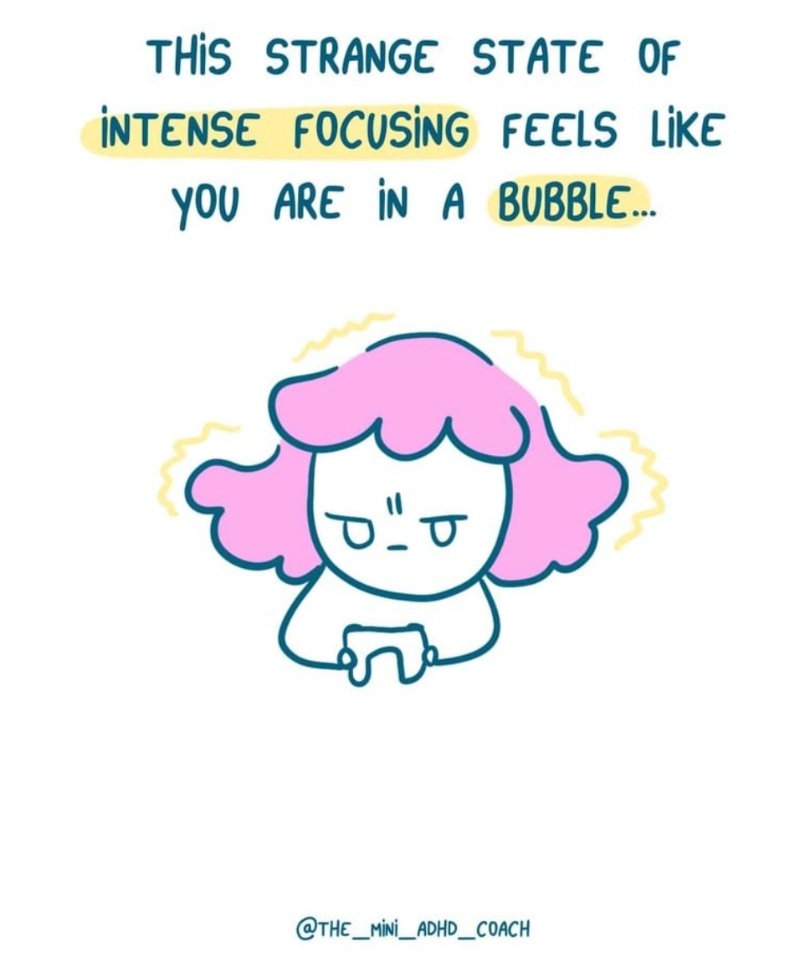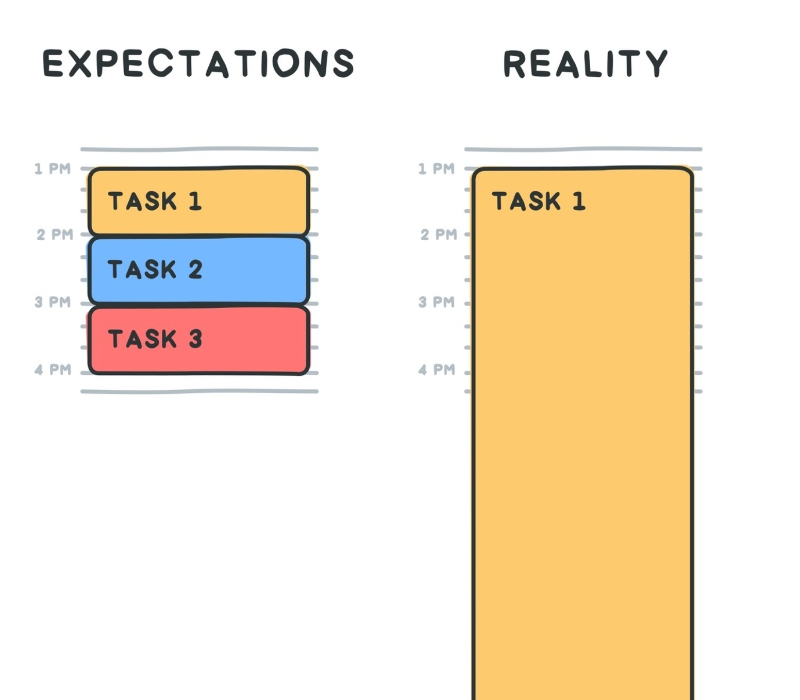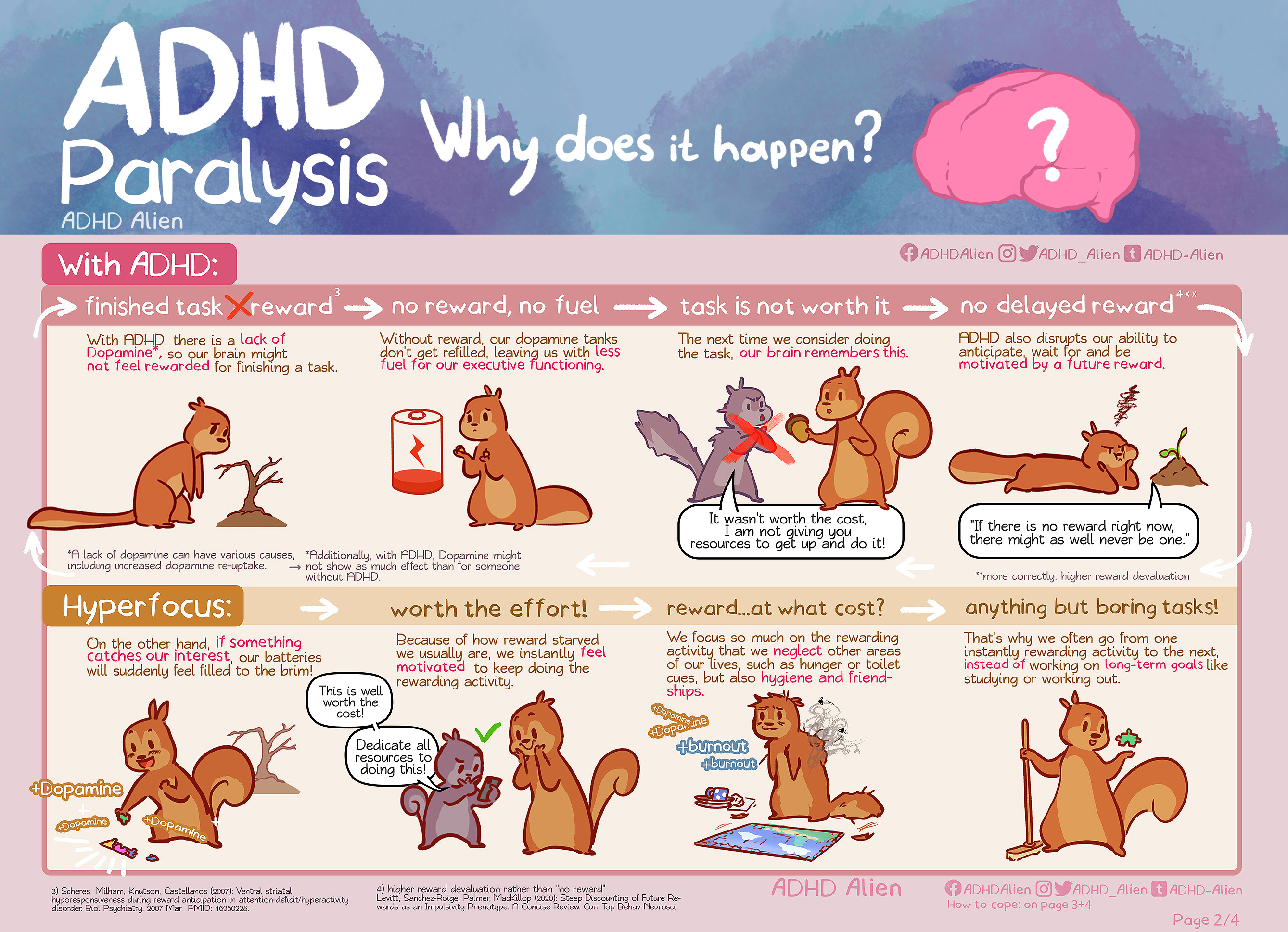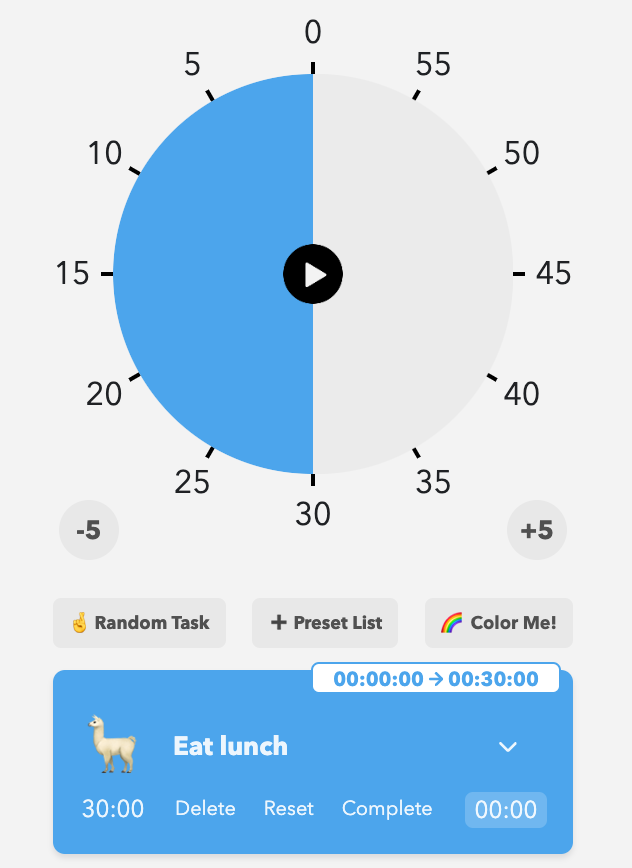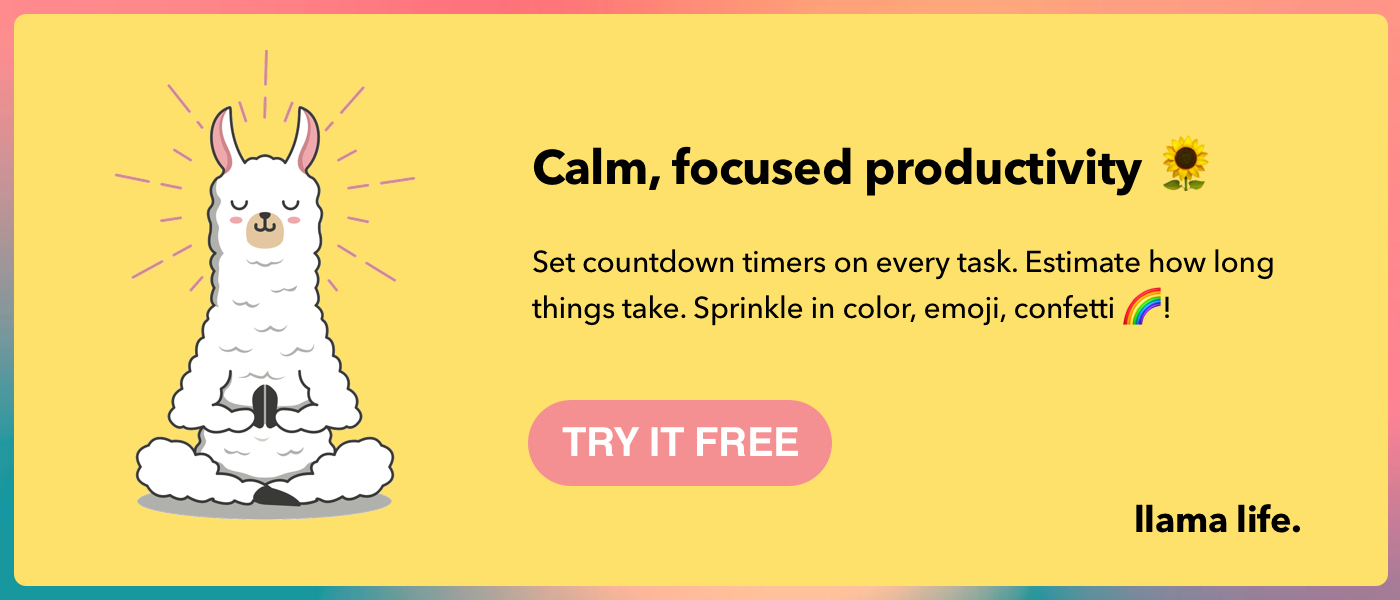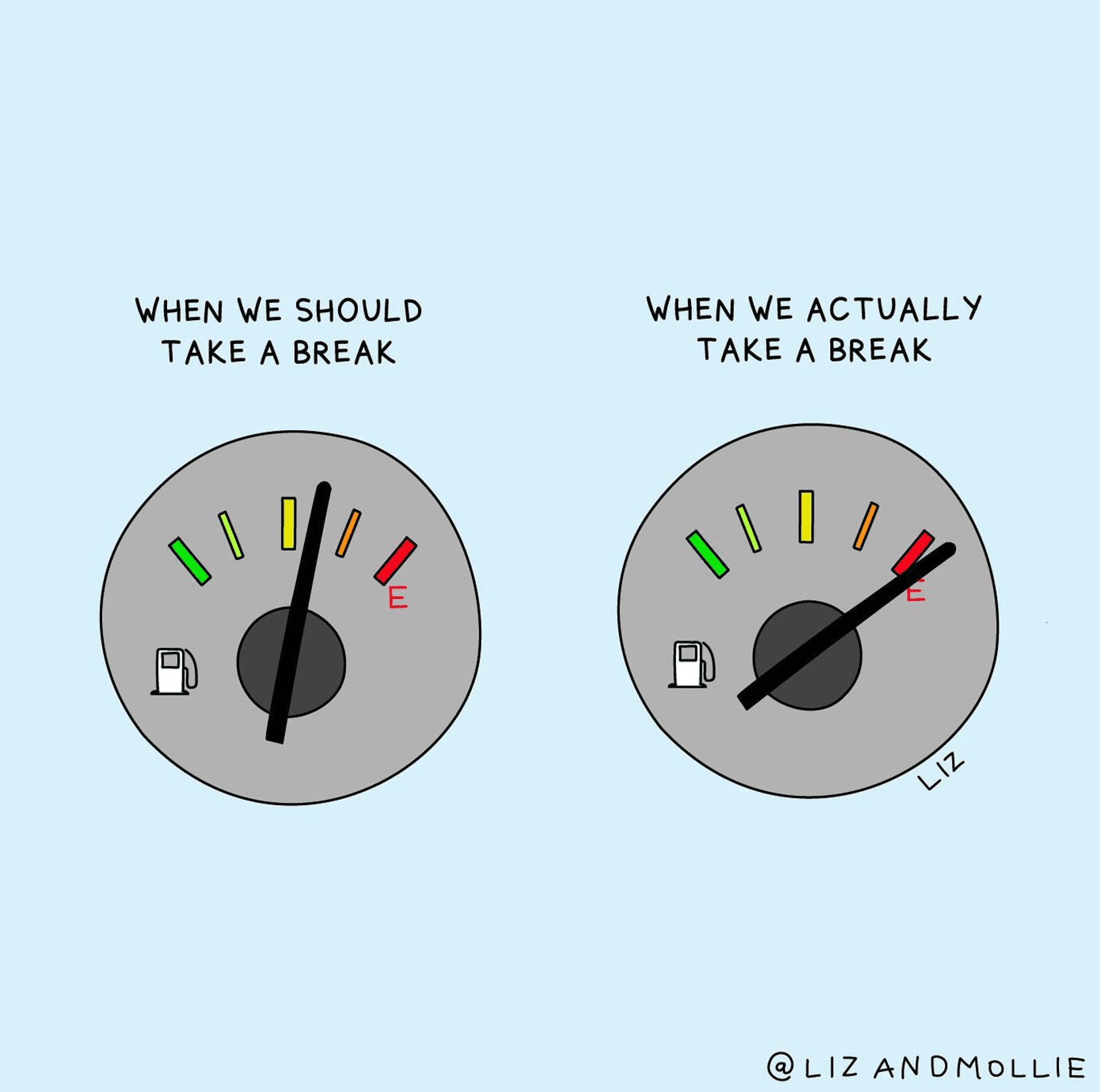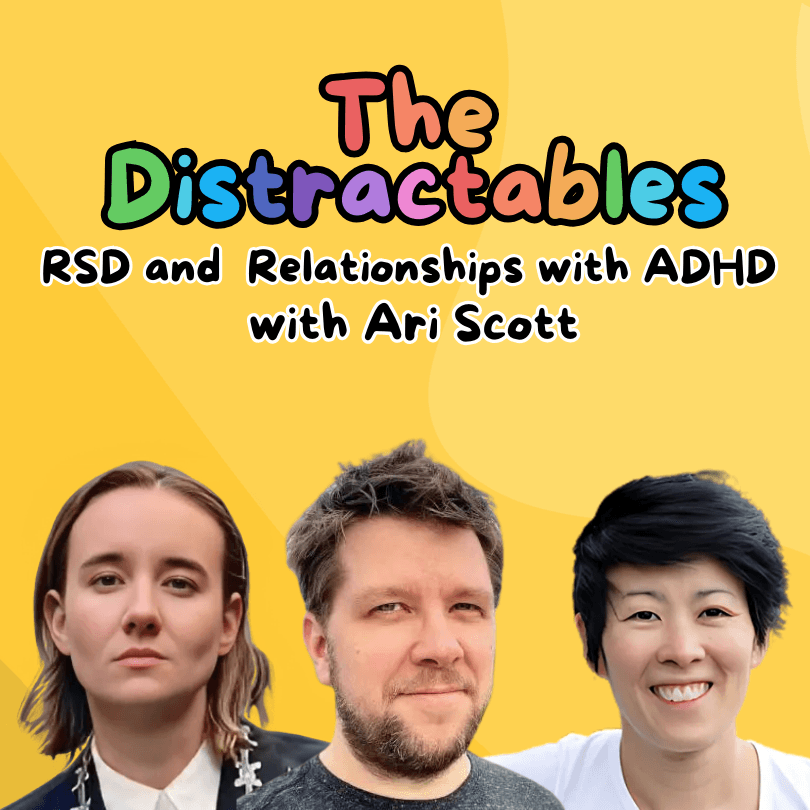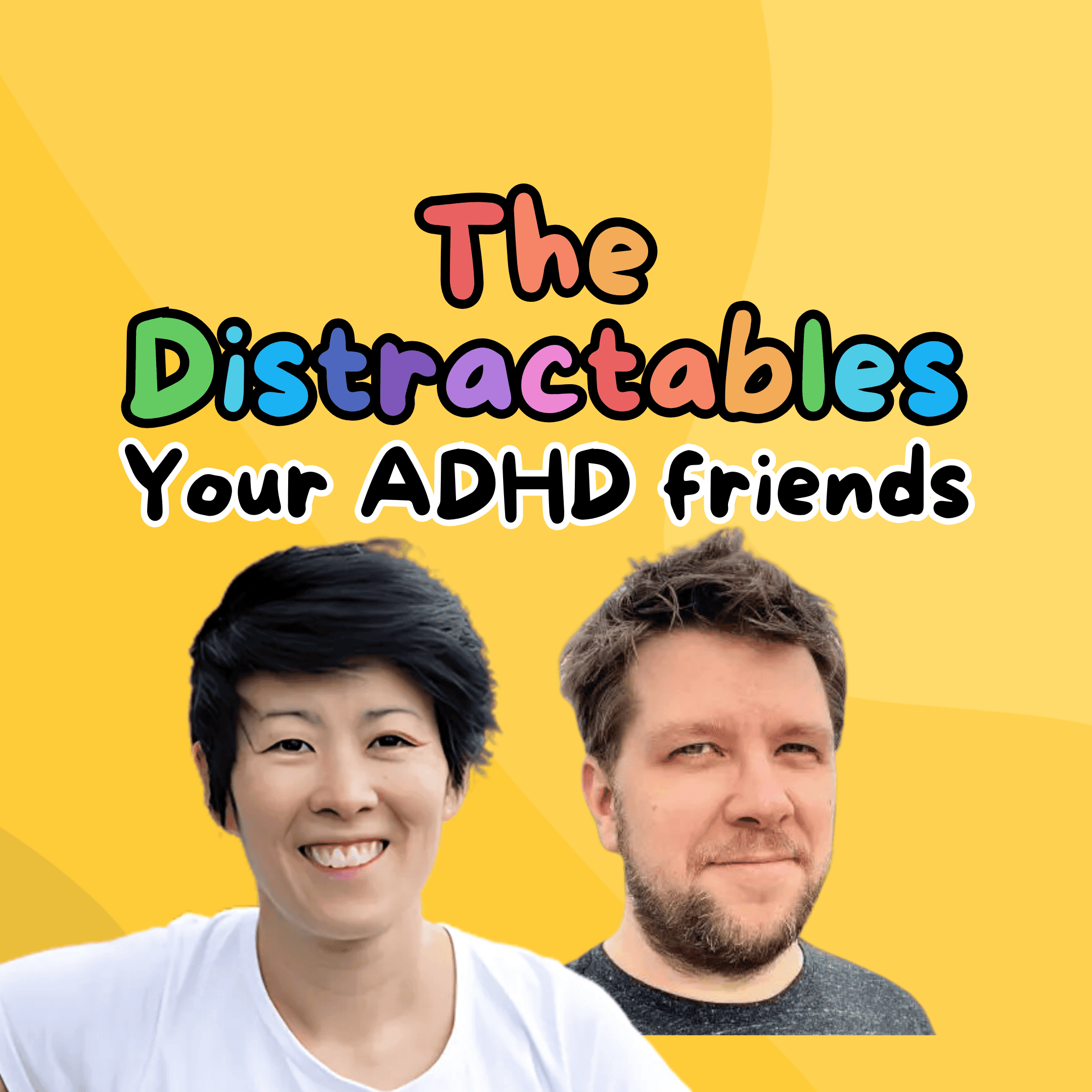Have you recently heard of the term hyperfocus? What about the term hyperfixation? They're terms being thrown around #ADHDTikTok quite a lot... but, what do they mean? Are they the same thing? Are they good, or bad for you? And have you been hyperfixating or hyperfocusing without realising? 🤔
Let's get to the bottom of it.
Short on time? We've got you. Head to the summary section right at the end!
Image credit: Konnichibot
Hyperfixation definition
The term 'hyperfixation' refers to an intense interest in a particular thing– whether it be a specific topic, hobby, activity, food, or even clothes, that can endure for a few days, weeks, months, or even years.
This can manifest in a variety of ways, such as becoming engrossed in a particular hobby, or obsessively researching a topic for an extended period.
Despite the lack of an accepted definition of this term, the term "hyperfixation" has been increasingly searched on Google since 2016, with a significant upsurge in 2020.
This suggests that people have been using the term to portray this occurrence in themselves and others, even though it is not officially recognized in the dictionary as yet.
Image credit: The Mini ADHD Coach
Hyperfocus definition
The definition of the term 'hyperfocus' describes a mental state in which a person is deeply engrossed or fixated on a particular single task, activity, or area of interest for an extended period of time.
According to Brandon K. Ashinoff, a postdoctoral fellow at the Department of Psychiatry at Columbia University, hyperfocus "reflects an individual's complete absorption in a task to such an extent that they appear to tune out everything else", which can include essential needs like eating, drinking water, or using the restroom.
This phenomenon is often compared to the "flow state," a term coined by psychologist Mihály Csíkszentmihályi in 1970. In this state, an individual is fully immersed in an activity, feeling energized and focused, with a sense of enjoyment and satisfaction. Time just slips away!
In some instances, hyperfocus can be considered a valued aspect of creative productivity. However, a hyperfocused person can also experience negative consequences, including emotional exhaustion, neglect of personal needs, and social isolation.
Image credit: Janis Ozolins
Hyperfixation vs Hyperfocus - what is the difference?
Hyperfixation and hyperfocus are often used interchangeably to describe a state of being intensely focused on a particular task or activity at the expense of other important tasks and needs.
However, according to research and available writings on the topic, there is a difference between the two terms and how people use them.
Hyperfixation refers to a broader interest or passion that lasts over a longer time period, while hyperfocus is a more task-driven form of intense focus and refers to a shorter time period, usually hours or days.
For example, you may hyperfixate on an outfit, and wear the same outfit for weeks, or hyperfixate on a particular meal and eat that same meal regularly for days or weeks (or until you've had enough!).
An example of someone hyperfocusing could be reading a book, you've become so focused on the book that 5 hours has passed without you realising.
Understanding the difference between hyperfixation and hyperfocus is particularly helpful for individuals with Attention Deficit Hyperactivity Disorder (ADHD), as both can be helpful or harmful in different contexts.
Hyperfixation can be a positive outlet for creativity and self-expression, while hyperfocus can be beneficial for completing important tasks or projects. However, it's also essential to recognize when these states of intense focus become problematic and start to interfere with other aspects of your life.
By understanding the differences between the two, individuals with ADHD can learn to recognize and harness these states of focus in a positive way and avoid the negative consequences that can arise when they become excessive or unmanaged.
Hyperfixation and hyperfocus are associated with multiple different mental health conditions
Although neurotypical people also experience hyperfocus and hyperfixation, they are both often associated with different mental health conditions, particularly in people with ADHD, as it appears more commonly and happens more frequently to people in this population.
Hyperfocus and Attention Deficit Hyperactivity Disorder (ADHD)
While neither hyperfocus or hyperfixation are official symptoms of ADHD, hyperfocus is widely used to describe a heightened, focused attention in ADHD and is a "clinically well-known phenomenon in patients" with ADHD.
For example, researchers Ozel-Kizil et al. (2016) defined hyperfocus as a clinical phenomenon of "locking on" to a task in patients with ADHD who have difficulty shifting their attention.
Because ADHD is often characterized by a difficulty in sustaining attention, it seems counterintuitive to think that people with ADHD would experience hyperfocus.
The truth is, ADHD is more than just having an "attention deficit" and in reality describes a neurodivergence in a variety of cognitive tasks, such as executive functions (like planning ahead, following multiple-step directions, and self-control), attention, memory and reward systems.
In particular, the changes in executive functioning and reward systems can make it difficult for someone with ADHD to switch tasks, especially if the task is currently providing a "rewarding" feeling in our brain, leading them to crave more of that and continue on the task.
This focus typically leads to a diminished perception of the environment which leads people with ADHD to lose track of time, a phenomenon known as time blindness, and neglect other tasks.
Interestingly, whilst experiencing hyperfocus, researchers found that patients with ADHD are aware of the things that they ignore, however they cannot give up what they are doing (Brown, 2005; Conner, 1994).
Research into the neurological causes and functions of hyperfocus is limited, but it is known that the brain's prefrontal cortex play a crucial role in regulating attention and focus and that ADHD is associated with a weakened prefrontal cortex. It is also thought that the neurotransmitter dopamine may play a role in hyperfixation and hyperfocus.
Understanding hyperfocus can help individuals with ADHD develop strategies to manage their symptoms and increase their productivity.
Because people with ADHD tend to be visual learners, we love this cartoon depiction of why hyperfocus occurs in people with ADHD created by ADHD Alien. (Bonus points that the artist cites the research at the bottom!)
Image credit: ADHD Alien
But if something catches our interest, we break out of this cycle and start hyperfocus. Our brain will quickly be overwhelmingly interested in the rewards we are getting! We invest all of our energy and time into this activity, often at the cost of our health, hygiene or relationships. That's why we often go from one instantly rewarding activity to the next, instead of working on long-term goals like studying or working out.
While hyperfixation and hyperfocus are most commonly associated with Attention Deficit Hyperactivity Disorder (ADHD), they are also seen and noted in Autism Spectrum Disorder (ASD), Anxiety disorders, Depression, and Obsessive Compulsive Disorder (OCD).
Hyperfixation and Autism Spectrum Disorders
In autistic individuals, hyperfixations are also called 'special interests'. They differ from the interests from neurotypical people in that they tend to be greater in number, more specific, and more concentrated in systemizing domains.
In individuals with Autism, hyperfocus can be a way to cope with sensory overload or to engage in activities that provide a sense of predictability and routine.
Hyperfixation in Anxiety, Schizophrenia, and Obsessive-Compulsive Disorder (OCD)
For individuals with anxiety disorders, hyperfixation can be a coping mechanism. It can serve as a way to distract oneself from anxious thoughts or feelings, providing a temporary sense of relief. Similarly, individuals with depression may hyperfixate on a specific activity or topic as a way to cope.
In Schizophrenia, hyperfixation can be a symptom of the illness, where individuals experience intrusive and obsessive thoughts.
Individuals with OCD may also experience symptoms of hyperfixation, becoming fixated on specific thoughts or behaviors referred to as "obsessions" that can result in repetitive behaviors or compulsions. This can interfere with daily functioning and cause significant distress.
In conclusion, hyperfixation and hyperfocus are complex phenomena that can be associated with multiple different mental health conditions and is most commonly associated with ADHD. While they can serve as coping mechanisms for some individuals, they can also interfere with daily functioning and cause distress. Further research is needed to better understand the underlying neurological causes and functions of hyperfixation and hyperfocus.
The positive and negative aspects of hyperfixation
When someone with ADHD is hyperfixating on something, they are completely absorbed in the task at hand, which can lead to impressive accomplishments. It can also provide an immense sense of achievement. For instance, if someone is hyperfixating on their career, they may achieve great success in their chosen field. Furthermore, hyperfixation can lead to the formation of new friendships and communities, as well as the acquisition of new skills and knowledge.
On the other hand, hyperfixation can also be harmful. One of the most significant negative aspects of hyperfixation is its potential to affect relationships. When someone is intensely focused on something, they may be oblivious to the needs and feelings of others, leading to feelings of frustration and neglect.
Image credit: ADHD Comics
In addition, hyperfixation can have a negative impact on personal hygiene and health. For example, sitting for long periods of time or forgetting to drink water can have severe consequences on one's health and daily living.
Furthermore, if hyperfixation interferes with daily tasks and daily life, it can be harmful. For example, if someone is so hyperfixated on a task that they neglect other important responsibilities of everyday life, such as paying bills or maintaining their home, this can have serious consequences. Hyperfixation can also affect social interactions. People with an intense hyperfixation may push others away if they are constantly bugging them about their interest or activity.
In conclusion, hyperfixation can be a positive or negative trait, depending on the duration and intensity of hyperfixations.
While hyperfixation can lead to impressive accomplishments and new knowledge, it can also negatively impact relationships, personal hygiene, and daily responsibilities. It is essential to balance hyperfixation with other aspects of life to ensure overall wellbeing.
How to use time limits to avoid hyperfocus or hyperfixation
Learning about hyperfocus and hyperfixation can help you to use them to your advantage.
But in some cases, you'll want to avoid these intense periods of focus that cause you to forget about all the other essential life tasks you need to take care of.
And the key to doing that is setting timers.
Although simple on the surface, using timers can be an extremely effective time-management technique for people with ADHD to complete essential tasks.
Simply set a timer on your phone, clock, or with a productivity tool like Llama Life, and commit to working on a task until the timer goes off.
When the timer goes off, it's time to switch to another task. Timers can also help with the common symptom of time blindness by helping you keep track of how long you've spent on a particular task.
Get help if you need it
If you find yourself struggling with hyperfocus or hyperfixation, it may be time to seek professional help.
Talking to a mental health professional can help you understand the underlying causes of your hyperfocus or hyperfixation. They can also provide you with tools, strategies and treatment to manage these symptoms, and to help you live a more productive life.
It's important to note that hyperfocus and hyperfixation can sometimes be symptoms of underlying mental health issues, such as anxiety or depression. If you're dealing with these struggles, it's important to reach out to your doctor for help. They can refer you to a mental health professional or provide you with resources to manage your symptoms.
Remember, seeking professional help is not a sign of weakness. It's a brave step towards living a happier, healthier, and more productive life.
It'll be also very helpful to connect with fellow ADHDers. A potential option could include apps like Numo.
In summary:
- The terms hyperfocus and hyperfixation both refer to an intense period of focus for an extended length of time
- Where hyperfixation can be on a specific hobby, activity, food or drink of choice, and outfit, hyperfocus generally is on a single task, activity, or area of interest.
- A hyperfixation period generally lasts longer than a hyperfocused period
- For example, you may hyperfixate on an outfit, and wear the same outfit for weeks, or hyperfixate on a particular meal and eat that same meal regularly for days or weeks (or until you've had enough)
- A form of hyperfocus could be reading a book, and becoming completely engrossed in it. You've just started reading and before you knew it, 5 hours had passed! Another form of hyperfocus could be spending 7 hours on a painting.
- Hyperfixation and hyperfocus are not unique to individuals diagnosed with mental health conditions including Attention Deficit Hyperactivity Disorder (ADHD), Autism Spectrum Disorders (ASD), Anxiety, Schizophrenia, and Obsessive-Compulsive Disorder (OCD). Saying that, the vast majority of ADHDers have experienced them
- There are many potential positive and negative symptoms of hyperfixation and hyperfocus
- A potential positive symptom may include the ability to achieve impressive accomplishments - whilst all your focus is dedicated to one task, interest or activity, you've been able to learn new skills, or hone in on existing skills, whilst not being distracted
- There are a few potential negative symptoms of experiencing hyperfixation or hyperfocus. As all your attention is focused on one thing, you may neglect other important aspects of your life and wellbeing - including sleep, personal hygiene, relationships and other daily life responsibilities
- If you're finding yourself hyperfocusing or hyperfixating, and want to manage or reduce this, we suggest using a timer to help you combat time blindness. You can use your phone, physical timer or a digital tool like Llama Life
- If you find that hyperfocusing or hyperfixating is affecting your life negatively - consider seeking professional support

